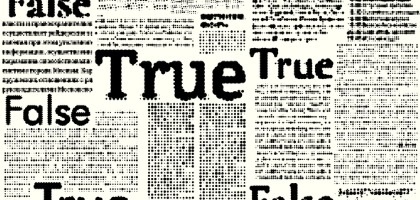News
A Helpful Explanation to the Modernizing Opioid Treatment Access Act (H.R. 1359 and S. 644) Released by National Organizations

Download the helpful explanation to the Modernizing Opioid Treatment Access Act.
The American Society of Addiction Medicine (ASAM), the American Association of Psychiatric Pharmacists (AAPP), the Association of Multidisciplinary Education and Research in Substance use and Addiction (AMERSA), and the Big Cities Health Coalition released a helpful explanation to the Modernizing Opioid Treatment Access Act of 2023 ("MOTAA"). Opposition has promoted misleading information about efforts to reform federal law and regulations governing methadone treatment for opioid use disorder (OUD) and responsibly expand access to methadone treatment for OUD, including MOTAA.
The explanation clarifies that contrary to statements that MOTAA would "increase access to medication only," the Controlled Substances Act (CSA) does not prohibit non-opioid treatment program (OTP) clinicians from providing other therapies and recovery supports; thus, MOTAA's legislative fix does not include such related amendments to the CSA.
The explanation also provides that, contrary to statements that the legislation would "likely result in physicians prescribing a powerful medication with no guardrails to limit diversion, or provide counseling and testing," and "that there is also no mechanism to evaluate the effectiveness of this proposed system:"
(1) MOTAA provides a legal mechanism for board-certified physicians in addiction medicine or addiction psychiatry, who do not work at OTPs, to prescribe methadone for opioid use disorder (OUD) that can be dispensed from retail pharmacies, by creating a new registration process with the Drug Enforcement Administration (DEA) for that purpose, so that such act is no longer criminalized at the federal level.
(2) Under MOTAA, non-OTP clinicians and pharmacies would remain subject to a variety of federal (and state) laws and regulations that guard against diversion of controlled medications. Expert clinical discretion would determine the frequency of counseling and drug testing in patient care, subject to any applicable state regulations. MOTAA would not change the longstanding federal requirement that all controlled medication prescriptions by authorized prescribers must be issued for a legitimate medical purpose in the usual course of professional practice.
(3) MOTAA would continue not to require the evaluation of the clinical effectiveness of the medical provision of any controlled medication, including methadone for OUD at OTPs, under the CSA, which is outside the purview of the CSA, which is a largely administrative/criminal law in nature. A continued myopic focus on expanding access to methadone for treatment of OUD through the current OTP system would unwisely invest limited resources in perpetuating a siloed system of clinics that primarily provides one medication (methadone) for one indication (OUD).
Further to this, MOTAA provides the following safeguards at the federal level:
(1) Requires prescriptions of methadone for OUD to be issued exclusively by electronic prescribing and to be dispensed only to patients;
(2) Continues to require methadone treatment for OUD be subject to SAMHSA’s restrictions listed in section 8.12(i)(3) of title 42, Code of Federal Regulations (or successor regulation or guidance) regarding unsupervised supply; and
(3) Establishes additional federal safeguards that make it logistically possible for retail pharmacists, who regularly input prescription data into state prescription drug monitoring programs, to include prescriptions for methadone for OUD in PDMPs, which is largely not happening in the case of methadone dispensed from OTPs and would allow for improved patient safety.
Download the helpful explanation to the Modernizing Opioid Treatment Access Act.
